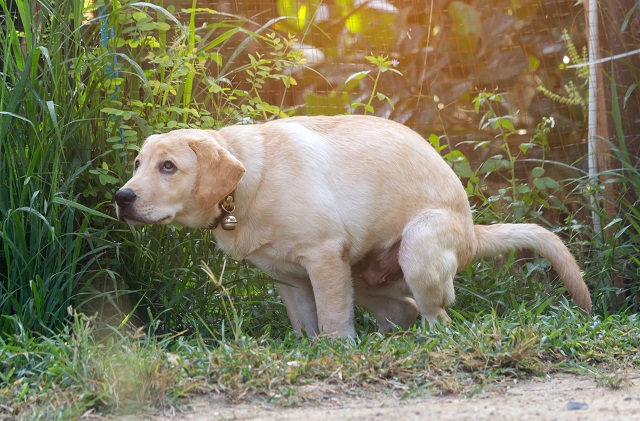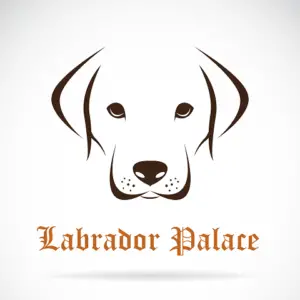Dogs can develop acute or sudden diarrhea for several reasons, such as illness, diet changes, travel stress, environmental changes, or specific dietary offenses, such as eating garbage.
As a Labrador Retriever owner, there are several ways you can treat or comfort your dog if he or she experiences diarrhea. These actions can be combined with preventative measures to reduce diarrhea in your Labrador Retriever.
Labrador Retrievers and Labrador Retriever puppies may experience acute diarrhea that will resolve on its own within a few days. However, diarrhea that persists for more than three days or becomes chronic may indicate an underlying health condition and requires veterinary care.
When diarrhea lasts longer than a few days, your Labrador Retriever will likely develop dehydration; your vet will have various tools and medicines at their disposal to treat your dog and diagnose any matters of significant concern.
What is causing my Labrador Retriever to have diarrhea?
| Rotten Food | Overeating |
| Diet Change | Motion Sickness |
The most common cause of diarrhea in your Labrador Retriever, especially in puppies or young dogs, is a dietary change or another dietary indiscretion, such as eating garbage or other items not intended for dogs.
Puppies and young dogs enjoy exploring the world through their mouths, much as human babies do. It is normal for your Labrador Retriever to consume rotten food sometimes, but it can also cause stomach upset.
A Labrador Retriever’s digestive system or intestinal tract may become infected with bacteria, viruses, or parasites when ingesting non-edible food items that often require antibiotic treatment.
Labrador Retrievers’ stomachs are more sensitive than human stomachs, so changing their diet may also cause stomach upset. Dogs’ digestive tracts and systems need several days to adjust to a new diet. In addition, Labrador Retriever owners should monitor how much food their puppy or dog consumes because overeating can also lead to acute diarrhea.
Dogs can experience motion sickness, which may result in diarrhea, vomiting, or nausea while traveling or after returning from a trip. A dog that is not well adapted to travel and that only travels for instances like veterinary visits may have a severe negative reaction to the increased stimulation and stress that travel brings.
Motion sickness can also cause diarrhea in dogs with medical issues such as inner ear infections. A Labrador Retriever’s digestive system can sometimes also be adversely affected by the medications it takes.
An increase in stress or anxiety in your dog’s life, whether due to travel, relocation or adding a new element, might also interfere with the digestive system.
How to recognize symptoms or diagnose diarrhea in my Labrador Retriever
Usually, the most obvious signs of diarrhea in your Labrador Retriever are soft or liquid stools and frequent defecation.
The size, shape, and texture of your dog’s loose stools can vary depending on the severity and cause of diarrhea your dog is experiencing. Diarrhea stools can be soft like mush, liquid, or a combination.
If you notice an increase in your dog’s defecation patterns, such as a change in defecation frequency, it would be important to examine their feces’ color, texture, and shape during this time.
A laboratory test may be necessary if there is blood or other discolorations in your Labrador Retriever’s feces during an episode of diarrhea.
When your Labrador Retriever experiences diarrhea, its primary concern will be dehydration.
Your dog is hydrated if your Labrador Retriever’s gums feel wet, and your finger can easily glide across them. However, if they feel tacky or sticky, your dog may be dehydrated and need to see a vet immediately.
If the diarrhea is more severe, other symptoms may require veterinary attention. These include lethargy, vomiting, or bleeding.
How to prevent diarrhea in your Labrador Retriever or Labrador Retriever puppy
You can take preventative measures to decrease the frequency of diarrhea in your Labrador Retriever or Labrador Retriever puppy. Dogs commonly get diarrhea from dietary causes, so monitoring your dog’s diet is crucial to preventing diarrhea.
You should be especially attentive to what puppies and young dogs eat and are allowed access to.
Garbage and trash cans should have secure lids or be able to withstand being tipped over. You should also strictly enforce the rule against feeding your puppy or Labrador Retriever human food.
Puppies and young dogs must be watched constantly for anything that could cause them to become ill. It is important to transition your puppy or Labrador Retriever to a new diet slowly. It is advisable to introduce new foods gradually, usually over a period of one or two weeks.
Make sure to feed your Labrador Retriever the right amount of food according to age and size.
Labrador Retrievers or puppies should be introduced to traveling at a young age to prevent diarrhea when in transit. Traveling frequently and making it pleasant will help your dog feel less anxious while riding in the car and during other travel experiences.
You can significantly reduce the likelihood of unexpected diarrhea by ensuring your Labrador Retriever or puppy’s comfort through its environment.

Are there any natural or at-home treatments for my Labrador Retrievers diarrhea?
An acute diarrhea case can usually be handled at home without the need for veterinary care. You should keep your Labrador Retriever or puppy hydrated and give them fluids throughout the day if they have an acute or non-serious bout of diarrhea.
There is a popular method of treating diarrhea in dogs at home by allowing your dog to fast for 12 to 24 hours.
Puppies and older dogs may not be able to handle a fast of this nature and should be treated with something else at home.
You can boil some rice for your Labrador Retriever or puppy to treat diarrhea at home.
When you boil rice, remove the grains, and then feed your dog the creamy rice broth, you’ll keep your Labrador Retriever hydrated while providing some nutrients.
In addition to plain rice, plain chicken without skin, and plain eggs, a bland diet can provide your Labrador Retriever with essential nutrients while recovering from diarrhea.
Some other methods to help your Labrador recover from diarrhea at home may be to provide probiotics or feed them a natural list of herbs or supplements that restore gut health.
When should I take my Labrador Retriever to the vet for diarrhea?
There are instances of diarrhea that are more severe than others and require veterinary attention.
You should consult your veterinarian if you notice any signs of dehydration in your Labrador Retriever or puppy. Dehydration may cause several system imbalances and can result in serious illness.
If your Labrador Retriever or puppy is vomiting, showing weakness, pain, or fever, take it to the veterinarian immediately.
You should take your dog to a veterinarian if your dog’s diarrhea becomes chronic or if the problem persists for more than two days.
How will the vet treat my Labrador Retriever with diarrhea?
Your Lab will be treated by a veterinarian based on the severity of its symptoms.
As part of a veterinary visit for diarrhea, you and your veterinarian will perform a physical examination of your dog, take a moment to review your dog’s health and history, and establish a general diagnosis.
Occasionally, diarrhea is diagnosed easily with certain bacteria or parasites and can be treated with medication and diet instructions at home as diarrhea subsides.
Veterinary tests will be performed for severe diarrhea to identify its cause and the extent to which it has made your dog ill.
Fecal examinations, X-rays, and fecal DNA tests are the least invasive methods, while intestinal biopsy, endoscopy, or even exploratory abdomen surgery are the most invasive.
After the veterinarian has diagnosed your dog’s diarrhea, they will prescribe appropriate medication and give you instructions on how to treat it.
In Conclusion
Dogs who have diarrhea are often suffering from dietary issues. In such cases of diarrhea, either acute or sudden, treatment is usually possible at home.
Natural and home remedies may work for your dog, but their effectiveness will vary based on breed and age.
The environment of a Labrador Retriever should be carefully considered by owners, as many cases of diarrhea are avoidable.
Your dog may suffer from severe diarrhea, in which case you should contact a veterinarian immediately.

